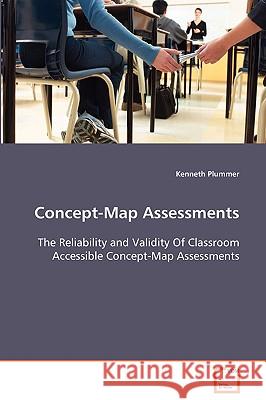Concept-Map Assessments » książka
Concept-Map Assessments
ISBN-13: 9783639084610 / Angielski / Miękka / 2008 / 220 str.
Concept maps have been used as learning and instructional tools in education for the last 30 years. Their use in evaluating learning and instruction has been not as enthusiastically received. This is a result of several factors including the challenge of scoring concept maps that reflect the idiosyncratic way in which individuals represent their knowledge. That said, one concept-map assessment in particular known as the construct-a-map task has shown great promise in facilitating reliable and valid inferences from student concept-map ratings. With all of its promise, however, the construct-a-map task is burdened with several rating difficulties. One challenge in particular is that no published rubric has been developed that accounts for the degree to which individual propositions are important to an understanding of the overall topic or theme of the map. Such a challenge has made it possible in some instances for less knowledgeable students to receive higher concept-mapping scores than more knowledgeable students. This work represents an attempt to examine the psychometric properties of two construct-a-map tasks designed to overcome in part this rating difficulty.











